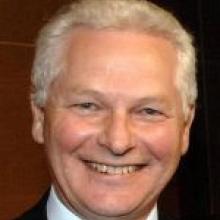
The New Zealand Medical Workforce annual survey showed that the number of doctors in Otago had risen by 17 to 644 since the previous survey, but in Southland it had fallen by 13 to 230.
In Otago, this translated to a rate of 355 doctors per 100,000 people, compared with 543 in Auckland.
Southland was much further down the list, with 178 doctors for every 100,000 people.
Across the country, the number of doctors has increased by 475 to 13,883, continuing the trend of recent years.
However, the survey, which is completed by most doctors when they apply for their annual registration, shows the average number of weekly hours worked nationally is still steadily declining, now standing at 43.9 hours, 1.6 hours lower than five years ago.
During that five years, the proportion of women in the workforce increased by 4% to 40% and the average age of doctors also rose by one year to 45.
The number of general practitioners in both provinces had changed little over the year with Southland's falling four to 103 and Otago's increasing by two to 171.
The survey also showed that, on average, most GPs in the South were working fewer than 40 hours a week.
In the Southern region, Clutha District had the highest average number of hours at 42, followed by those in the Waitaki district (40) and then Invercargill city (39).
In Dunedin city, the average was 34 hours. In Queenstown-Lakes, the average was 33, with the lowest Southern average recorded in Gore (30).
Nationally, the highest average GP hours were recorded in the Stratford and Mackenzie areas, at 53 hours a week. The lowest average for any place was 26 hours in the Carterton district, Wairarapa.
The highest number of weekly working hours in any role nationally were reported by house officers in hospitals at an average of about 53, closely followed by registrars.
Those working in primary care, other than general practitioners, said they worked the lowest hours each week - just under 35 on average.
Medical Council chairman Dr John Adams, of Dunedin, said there did not appear to be any major changes noted in the survey.
He said the section relating to retention of graduates showed the percentage of those still in New Zealand two years after they had registered was 93%, a few percentage points higher than any of the years since 1995 and 10% higher than the previous year.
It was too early to know if that would continue, but the hope was that the various measures taken by Health Work Force New Zealand to encourage graduates to stay were beginning to "trickle through the system".












